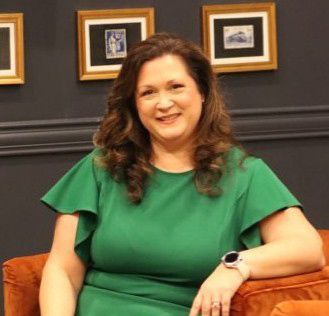Understanding Disenfranchised Grief in Rural Mississippi
Table Of Contents:
In rural Mississippi, grief often goes unrecognized. Just because others don’t see it doesn’t mean your pain isn’t real.
Have you ever experienced a loss that others didn't acknowledge or understand? In rural Mississippi, many face disenfranchised grief - a type of sorrow that goes unrecognized by society. This article explores the definition and types of disenfranchised grief, its unique challenges in rural Mississippi, and its mental health impacts. You'll learn how to recognize this hidden pain and find ways to move forward, even when your grief isn't openly validated by those around you.
Key Takeaways
- Disenfranchised grief occurs when society fails to recognize or validate certain types of loss
- Rural Mississippi presents unique challenges for those experiencing disenfranchised grief, including isolation and limited resources
- Education and open conversations can help normalize discussions about unrecognized forms of loss
- Building support networks and seeking professional help are crucial for coping with disenfranchised grief
- Exploring various coping mechanisms, like expressive writing or nature-based activities, can help in healing
Disenfranchised Grief Definition
Disenfranchised grief is a complex form of loss often overlooked in rural Mississippi. You'll learn about its meaning, key characteristics, and how it differs from other grief types. Understanding this concept can help you recognize and address unacknowledged pain, whether it's related to art therapy, sympathy, denial, health issues, or even murder-related trauma.
Exploring the Meaning of Disenfranchised Grief
Disenfranchised grief is a form of loss you might experience that society often fails to recognize or validate. This type of grief can occur in various situations, such as the end of a non-marital relationship, the loss of a pet, or even after a divorce where your social circle doesn't acknowledge your pain.
You may encounter disenfranchised grief in connection with invisible illnesses like postpartum depression or schizophrenia, where others struggle to understand your experience. This concept also extends to losses related to chronic diseases or situations where social links are severed, leaving you feeling isolated and unsupported in your mourning process.
Key Characteristics of Disenfranchised Grief
You might recognize disenfranchised grief by its unique characteristics. This concept often involves a lack of social recognition for your loss, leading to feelings of isolation and invalidation. You may experience fear and insomnia as you struggle to process your emotions without the usual support systems in place.
Another key aspect of disenfranchised grief is its connection to situations society deems less worthy of mourning. For example, you might face this type of grief when dealing with a terminal illness or the loss of a job. Education about this concept can help you understand and validate your experiences, even when others don't acknowledge them.
Distinguishing Disenfranchised Grief From Other Types
You can distinguish disenfranchised grief from other types by its lack of social recognition and support. Unlike anticipatory grief, which occurs before an expected loss, disenfranchised grief often follows events society doesn't view as significant enough to warrant mourning. This can leave you feeling isolated and unable to participate in traditional grief rituals or funerals.
While conventional grief often involves clear feelings of sadness and loss, disenfranchised grief can be more complex. You might experience conflicting emotions, such as relief mixed with guilt, especially in cases involving drug addiction or complicated relationships. These feelings can be challenging to process without the usual support systems, making your grief experience unique and potentially more difficult to navigate.
- Lack of social recognition
- Limited access to grief rituals
- Complex, conflicting emotions
- Isolation in the grieving process
- Difficulty finding support
Types of Disenfranchised Grief
You may encounter various types of disenfranchised grief in rural Mississippi. These include grief associated with non-traditional relationships, loss from stigma-related deaths, and grieving for loved ones with mental health conditions. You might also experience grief in response to miscarriages and stillbirths, as well as cultural factors affecting grief expression. Understanding these types can help you approach your experiences with compassion and validate your feelings, even when others may not recognize your loss.
Grief Associated With Non-Traditional Relationships
You may experience disenfranchised grief in non-traditional relationships that society often overlooks. This can include ambiguous loss in situations like the incarceration of a family member or the end of a same-sex partnership. Your sorrow may be intensified by the lack of recognition from others, especially in rural Mississippi where traditional family structures are highly valued.
When you face grief related to taboo relationships or those affected by crime, you might struggle to find support. Your pain is real, whether it's from losing a partner in an affair or mourning a loved one involved in illegal activities. Remember, your feelings are valid, even if society doesn't acknowledge them
Loss From Stigma-Related Deaths
You may experience disenfranchised grief when facing losses related to stigmatized deaths in rural Mississippi. This can include situations like suicide, drug overdose, or HIV/AIDS-related deaths, where societal judgment often compounds your feelings of loneliness and confusion. These losses can disrupt your sleep patterns and leave you struggling to find support or understanding from your community.
Narrative therapy can be a helpful tool in processing your grief from stigma-related deaths, allowing you to reframe your experience and find meaning. This approach can be particularly beneficial if you've experienced a miscarriage, which is often overlooked as a significant loss. Remember, your grief is valid, regardless of how others perceive the circumstances of your loss.
Grieving for a Loved One With a Mental Health Condition
When you're caring for a loved one with a mental health condition in rural Mississippi, you might experience disenfranchised grief as their personality changes or their condition worsens. Your understanding of their struggles with addiction or other mental health issues can lead to complex emotions, affecting your appetite and sleep patterns.
You may find yourself grieving the loss of future dreams or the person your loved one used to be, even though they're still physically present. Seeking grief or bereavement therapy in Ridgeland can help you process these feelings and provide tools for coping with the ongoing challenges of supporting someone with a mental health condition.
Grief in Response to Miscarriages and Stillbirths
You may experience disenfranchised grief after a miscarriage or stillbirth in rural Mississippi, where cultural attitudes often downplay these losses. Your feelings of regret and panic are valid, even if others don't acknowledge them. Physicians can play a crucial role in providing support and understanding during this difficult time.
Cultural sensitivity is essential when addressing your grief from pregnancy loss. You might encounter challenges in expressing your emotions or finding support, particularly in rural areas. Remember that your experience is unique, and it's okay to seek help to process your loss:
Aspect
Impact on Grief
Cultural attitudes
May minimize the significance of the loss
Rural setting
Limited access to support services
Medical support
Can validate feelings and provide resources
Cultural Factors Affecting Grief Expression
In rural Mississippi, cultural factors significantly influence how you express grief, often leading to disenfranchised experiences. Your religious beliefs might shape your approach to loss, potentially causing frustration if you feel pressure to maintain a strong faith during difficult times. You may find yourself engaging in bargaining as part of your grieving process, which can be misunderstood by those around you.
The cultural emphasis on resilience in rural communities can sometimes make it challenging for you to openly express your grief, leading to fatigue from suppressing emotions. Seeking therapy can provide a safe space to navigate these cultural expectations while addressing your unique grief experience. Remember that your feelings are valid, even if they don't align with traditional cultural norms of grieving in your community.
Understanding Disenfranchised Grief in Rural Mississippi
In rural Mississippi, you face unique challenges with disenfranchised grief. Isolation can intensify your experience, especially when dealing with losses from affairs, dementia, or stillbirths. Navigating grief in close-knit communities presents its own difficulties. You'll learn about the importance of culturally sensitive support services and community initiatives that acknowledge various forms of loss, including those related to policy changes or death.
Unique Challenges Faced by Rural Communities
In rural Mississippi, you face unique challenges when dealing with disenfranchised grief. The pandemic has amplified feelings of isolation, making it harder for you to process your emotions and memories. Limited access to mental health resources can leave you struggling to navigate complex grief experiences, especially when society doesn't recognize your loss.
Your grief may be compounded by the close-knit nature of rural communities, where everyone knows each other's business. This can affect your behavior, as you might feel pressure to maintain a stoic facade even when dealing with significant loss. Understanding these challenges is crucial for developing effective support systems that address the specific needs of rural residents experiencing disenfranchised grief.
The Impact of Isolation on Grief Experiences
In rural Mississippi, isolation can intensify your experience of disenfranchised grief. You might find yourself struggling with substance abuse or anger as you cope with a breakup or loss without adequate support. The lack of attention to your grief can exacerbate feelings of loneliness, making it challenging to process your emotions healthily.
If you're dealing with grief related to foster care experiences or other unacknowledged losses, the impact of isolation can be particularly severe. You may feel disconnected from your community, leading to a cycle of withdrawal and increased emotional distress. Recognizing these challenges is the first step towards seeking appropriate support and breaking the isolation that compounds disenfranchised grief:
- Limited access to support services
- Increased risk of unhealthy coping mechanisms
- Difficulty in expressing grief openly
- Feelings of disconnection from community
- Potential for prolonged or complicated grief
Navigating Grief in Close-Knit Communities
In close-knit rural Mississippi communities, you may find navigating disenfranchised grief challenging, especially when your loss involves sensitive issues like homosexuality or adoption. As a patient seeking support, you might experience hidden sadness due to fear of judgment or lack of understanding from your neighbors. Your grief may go unacknowledged, intensifying your feelings of isolation.
You can find ways to cope with your grief while respecting community dynamics. Consider seeking support from trusted friends or professionals who understand the complexities of disenfranchised grief. Remember, your feelings are valid, even if they're not openly discussed in your community. Embracing your emotions privately or in safe spaces can help you process your loss without compromising your place in the community.
Importance of Culturally Sensitive Support Services
When you're dealing with disenfranchised grief in rural Mississippi, culturally sensitive support services are crucial. These services consider your unique background, including your nutrition habits and alcohol use, which can affect your grief experience. By understanding your cultural context, support providers can offer more effective meditation techniques and help you manage stress-related blood pressure issues.
You'll find that culturally sensitive support services improve your perception of the help available to you. These services recognize that your grief may be influenced by local customs and beliefs, which can impact how you express and process your loss. By acknowledging these factors, support services can offer you more tailored and effective assistance in navigating your grief journey.
Community Initiatives for Acknowledging Grief
In rural Mississippi, community initiatives are emerging to acknowledge disenfranchised grief, particularly for those experiencing guilt associated with poverty or loss of a girlfriend. These programs aim to create safe spaces where you can express your feelings without judgment, addressing the unique challenges faced by LGBTQ individuals and others whose grief often goes unrecognized.
Local nursing homes are partnering with community centers to offer support groups that address various forms of disenfranchised grief. These initiatives provide a platform for you to share your experiences, whether you're dealing with the loss of a same-sex partner or struggling with the emotional impact of extreme poverty. By fostering understanding and empathy, these programs help reduce the isolation often experienced in rural settings:
Initiative Type
Target Group
Key Benefit
Support Groups
LGBTQ Community
Safe space for expression
Nursing Home Programs
Elderly Residents
Addressing cumulative losses
Community Workshops
Low-income Families
Coping strategies for poverty-related grief
Mental Health Implications of Disenfranchised Grief
Disenfranchised grief in rural Mississippi can profoundly impact your mental health. You may experience emotional consequences from unrecognized losses, such as the death of a pet or the end of a teaching career. Long-term effects can include bipolar disorder or prolonged sadness. Community resources and support strategies are available to help you navigate these challenges and find joy again, even after experiencing injury or loss.
Emotional Consequences of Unrecognized Loss
When you experience disenfranchised grief in rural Mississippi, you may face emotional consequences that often go unrecognized. You might feel isolated and misunderstood, leading to depression and anxiety that can impact your overall health. As a health professional, it's crucial to acknowledge that these feelings are valid, even if society doesn't recognize your loss.
The social stigma surrounding certain types of loss can exacerbate your emotional distress. You might struggle to express your grief openly, fearing judgment or dismissal from others. This suppression of emotions can lead to long-term mental health issues, making it essential to seek support from understanding professionals who can help you navigate the complexities of disenfranchised grief.
Long-Term Effects on Mental Health
You may experience long-term effects on your mental health when dealing with disenfranchised grief in rural Mississippi. The prolonged stress of unacknowledged loss can lead to conditions like prolonged grief disorder, requiring professional counseling and sometimes medication. Art therapy can be a valuable tool in processing these complex emotions, helping you express feelings that may be difficult to articulate verbally.
Without proper support, you might find yourself struggling with persistent sadness and difficulty finding joy in daily life. Seeking help from mental health professionals who understand disenfranchised grief is crucial for your well-being. They can provide tailored counseling strategies to address your unique experiences and help you navigate the long-term impacts of your unrecognized loss:
Mental Health Impact
Potential Intervention
Prolonged grief disorder
Specialized counseling
Chronic stress
Stress management techniques
Emotional suppression
Art therapy
Depression
Medication and therapy combination
Community Mental Health Resources in Mississippi
In rural Mississippi, you can access community mental health resources to help you cope with disenfranchised grief. These services offer support for various types of loss, including those related to marriage difficulties or the pain of mourning a loved one. You'll find counseling centers and support groups that provide a safe space to express your feelings and work through your grief.
Community-based programs in Mississippi also focus on suicide prevention and addressing the unique challenges of rural areas. You can participate in workshops that teach coping strategies and connect with others who understand your experience. These resources aim to reduce the isolation often associated with disenfranchised grief, helping you find support within your community.
Strategies for Seeking Help and Support
When seeking help for disenfranchised grief in rural Mississippi, you can explore online support groups that focus on specific types of loss, such as the end of a friendship or job loss. These platforms allow you to connect with others who understand your experience, providing a safe space to share your feelings and work through the five stages of grief at your own pace.
You might also benefit from grief counseling services that incorporate javascript-based tools to help you process your emotions and adjust to your new reality. These innovative approaches can complement traditional therapy methods, offering interactive exercises that guide you through your grief journey while respecting the unique challenges of rural living.
Moving Forward With Disenfranchised Grief
As you navigate disenfranchised grief in rural Mississippi, you'll discover ways to move forward. You'll learn how to encourage open conversations, understand the role of education, and build support networks. Exploring coping mechanisms and working with professionals can help you find space for healing. By addressing issues of identity, gender, and sibling relationships, you'll develop empathy for yourself and others experiencing unacknowledged loss.
Encouraging Open Conversations About Grief
You can encourage open conversations about disenfranchised grief in rural Mississippi by creating safe spaces for caregivers and grandparents to share their experiences. By acknowledging the impact of natural disasters on mental health, you'll help normalize discussions about less recognized forms of loss. Start support groups where people can openly express their feelings without judgment.
As you navigate your grief journey, remember that coping strategies vary for each individual. Seek out health care professionals who understand disenfranchised grief and can provide tailored support. By fostering an environment of understanding, you'll empower yourself and others to address hidden sorrows and find paths to healing. Consider these steps to promote open dialogue:
- Organize community events focused on different types of loss
- Share personal stories to reduce stigma
- Collaborate with local health centers to offer grief education
- Create online forums for those unable to attend in-person meetings
- Encourage local leaders to acknowledge various forms of grief publicly
The Role of Education in Addressing Grief
Education plays a crucial role in addressing disenfranchised grief in rural Mississippi. By increasing your understanding of various types of loss, including those related to pregnancy or cultural shifts, you can improve your quality of life and mental well-being. Learning about grief can help you recognize and validate your own experiences, even when society may not acknowledge them.
As you gather information about disenfranchised grief, you'll develop a more compassionate mindset towards yourself and others facing similar challenges. This knowledge can empower you to seek appropriate support and develop coping strategies tailored to your unique situation. By educating yourself and your community, you contribute to breaking the silence surrounding unrecognized forms of loss, fostering a more supportive environment for all.
Building Support Networks in Rural Mississippi
You can build support networks in rural Mississippi to address disenfranchised grief by connecting with others who share similar experiences. Reach out to local community centers, churches, or online forums to find people who understand your unique loss. By sharing your knowledge and experiences, you can help reduce the shame often associated with unrecognized grief.
Consider starting a support group in your area if one doesn't exist. This can provide a safe space for you and others to discuss your feelings and coping strategies. Remember, building a support network takes time and effort, but it can significantly improve your ability to navigate disenfranchised grief:
- Identify potential support sources in your community
- Reach out to local mental health professionals for guidance
- Use social media to connect with others experiencing similar losses
- Organize regular meetups or virtual gatherings for shared support
- Collaborate with local organizations to raise awareness about disenfranchised grief
Coping Mechanisms and Healing Practices
When coping with disenfranchised grief in rural Mississippi, you can explore various healing practices tailored to your unique experience. Consider engaging in expressive writing or journaling to process your emotions privately. This technique allows you to acknowledge and validate your feelings, even when others may not recognize your loss.
You might find solace in nature-based healing practices, which can be particularly effective in rural settings. Spending time outdoors, gardening, or participating in community conservation efforts can provide a sense of purpose and connection. These activities offer a way to honor your grief while contributing positively to your environment:
- Practice mindfulness meditation to stay present
- Join or create a support group for shared experiences
- Engage in creative arts as a form of expression
- Volunteer in your community to find meaning
- Seek professional counseling for guided support
Working With Professionals for Grief Support
When dealing with disenfranchised grief in rural Mississippi, you can benefit greatly from working with professionals who understand your unique situation. Seek out therapists or counselors experienced in grief support, particularly those familiar with rural challenges. These professionals can provide you with tailored strategies to navigate your emotions and find healthy ways to express your grief.
You might consider teletherapy options if local resources are limited. This allows you to connect with specialists who can guide you through your grief journey, even from a distance. Remember, professional support can be crucial in validating your experiences and helping you develop coping mechanisms specific to your circumstances. Working with a grief professional can offer you:
- Personalized coping strategies
- Validation of your grief experience
- Tools to navigate complex emotions
- Support in rebuilding your sense of self
- Guidance on communicating your needs to others
Frequently Asked Questions
What is disenfranchised grief and how does it differ from other types of grief?
Disenfranchised grief occurs when a loss isn't socially recognized or validated. Unlike typical grief, it's often hidden or dismissed, leaving the grieving person without support. Examples include pet loss, miscarriage, or grieving an ex-partner. This lack of acknowledgment can intensify feelings of isolation and pain.
How does rural Mississippi's culture impact experiences of disenfranchised grief?
Rural Mississippi's culture can intensify disenfranchised grief due to limited mental health resources, strong religious influences, and close-knit communities. These factors may lead to unacknowledged losses, social stigma, and pressure to conform, making it challenging for individuals to process and express their grief openly.
What are some common types of disenfranchised grief people might encounter?
Disenfranchised grief often arises from losses society may not fully acknowledge, such as miscarriage, pet death, job loss, divorce, or the death of an ex-spouse. It can also occur when grieving non-death losses like estrangement, chronic illness, or the end of a non-marital relationship.
How can disenfranchised grief affect a person's mental health and well-being?
Disenfranchised grief can significantly impact mental health, leading to feelings of isolation, depression, and anxiety. When your loss isn't acknowledged or validated by others, it can intensify emotional pain, complicate the grieving process, and hinder your ability to seek support and heal effectively.
What strategies can help individuals cope with and process disenfranchised grief?
Recognizing and validating your feelings is crucial when dealing with disenfranchised grief. Seek support from understanding friends or join support groups. Engage in self-care activities, journaling, or creative outlets to express emotions. Consider professional counseling to process your unique grief experience and develop coping strategies.

Alicia Mainka
Founder of Mainka Teletherapy Services, LLC
"Mindfulness therapy focuses on cultivating awareness and staying present in the moment. It helps reduce stress, improve emotional regulation, and build resilience for a healthier, more balanced life."
OUR RECENT POST:
Take the First Step Toward Change
Take the first step toward change by seeking support, gaining clarity, and building the tools you need to move forward.

Mainka Teletherapy Services offers compassionate online therapy to help individuals heal & achieve emotional well-being.
Site Navigation
Contact Information
Mainka Teletherapy Services, LLC
Phone: (601) 456-2633
E-mail:
Location: I service all of Mississippi and Louisiana
Business Hours
- Mon, Fri
- Closed
- Tue, Thu
- -
- Wednesday
- -
- Sat - Sun
- Closed
All Rights Reserved | Mainka Teletherapy Services, LLC | Privacy Policy | Website Designed by: Thriving Mind Marketing - Website Design For Therapists







